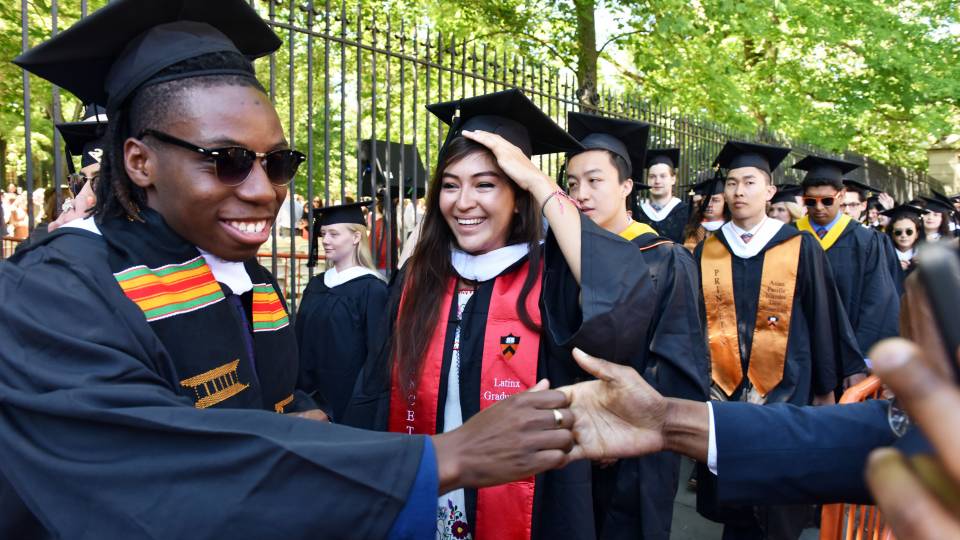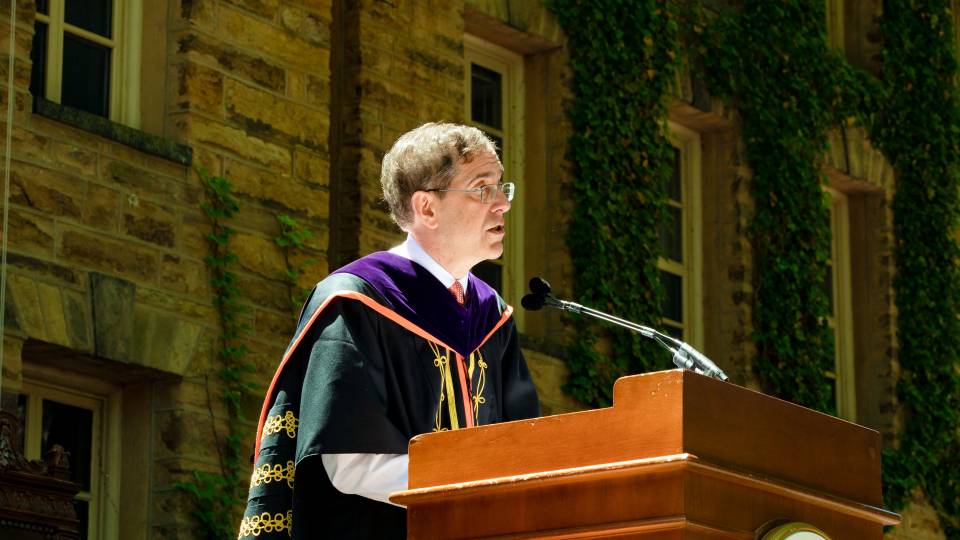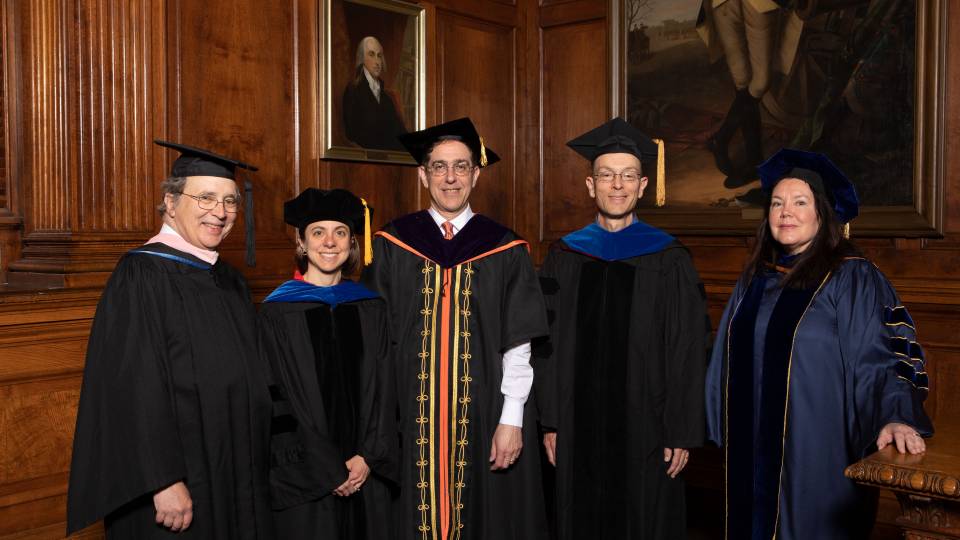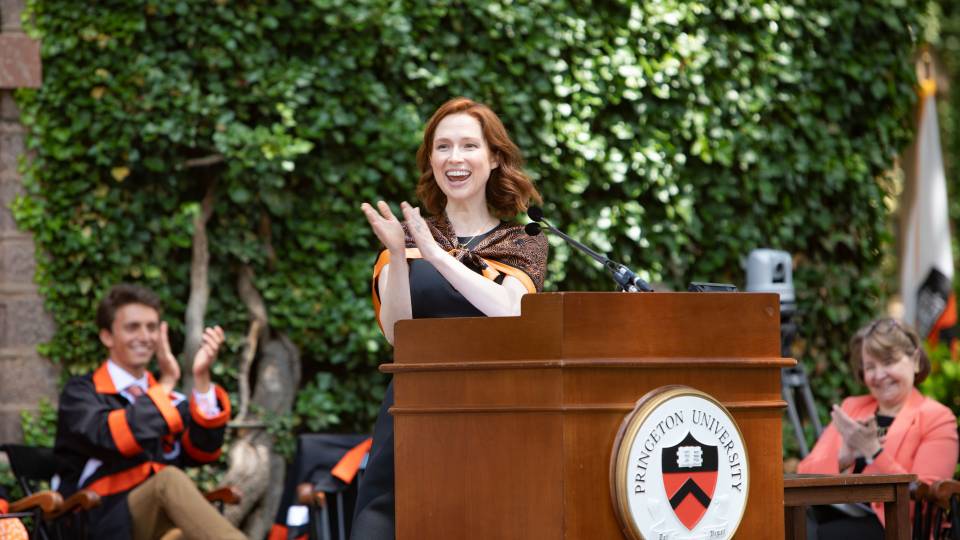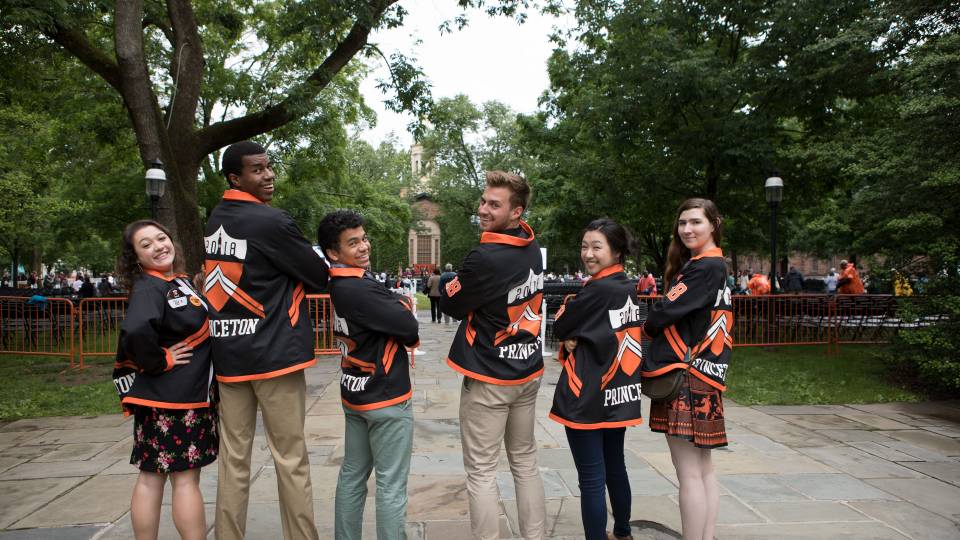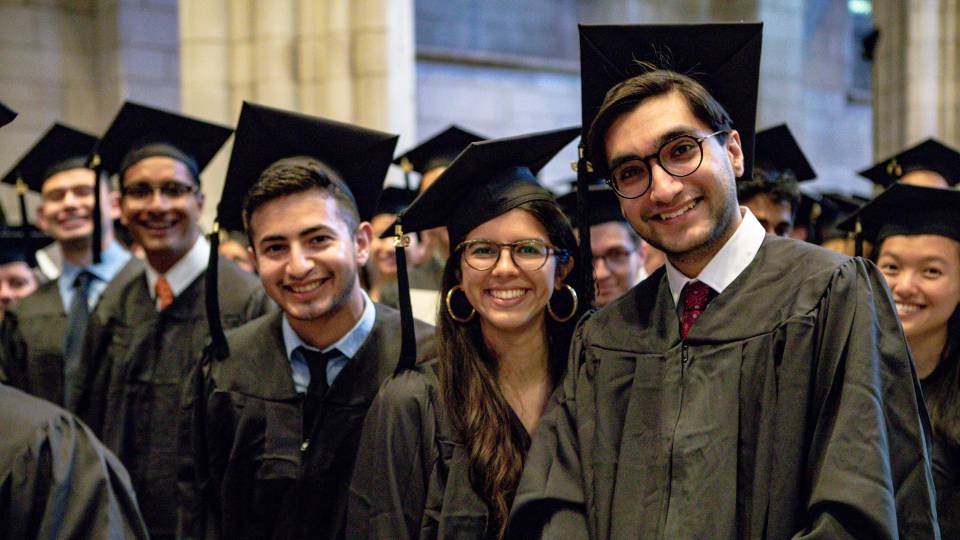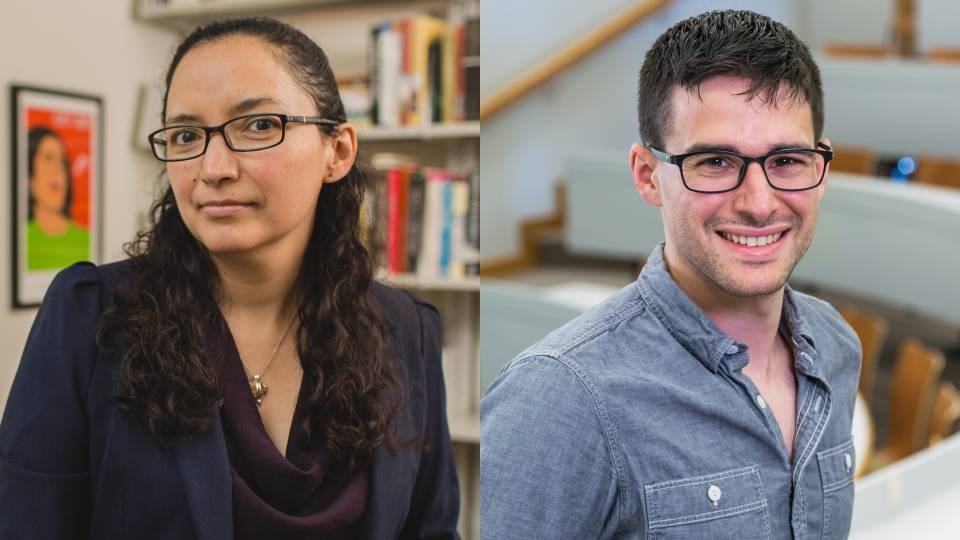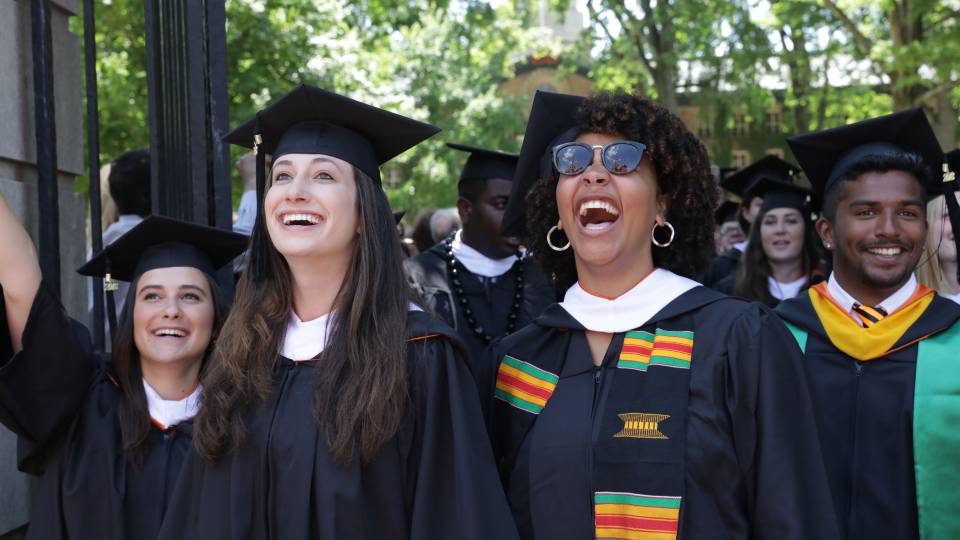Four Princeton University faculty members have been named recipients of the Graduate Mentoring Awards by the McGraw Center for Teaching and Learning and will be honored during the Graduate School’s Hooding ceremony Monday, June 3, on Cannon Green.
The award winners are Anna Shields, professor of East Asian studies and acting chair of the Department of East Asian Studies; Erika Milam, professor of history; Jonathan Pillow, associate professor of psychology and the Princeton Neuroscience Institute; and Emily Carter, dean of the School of Engineering and Applied Science, the Gerhard R. Andlinger Professor in Energy and the Environment, and professor of mechanical and aerospace engineering and applied and computational mathematics.
The mentoring award recognizes Princeton faculty members who nurture the intellectual, professional and personal growth of their graduate students. Graduate students nominate faculty members for the award and, together with faculty members, serve on the committee that selects the winners. The award honors faculty in each academic division (engineering, humanities, natural sciences and social sciences) and includes a $1,000 prize and a commemorative gift.

Emily A. Carter
Emily Carter
Emily Carter joined the Princeton faculty in 2004. She is the founding director of the Andlinger Center for Energy and the Environment and was named dean of the School of Engineering and Applied Science in 2016. Students said even with her significant administrative obligations, Carter is an attentive and involved mentor. “Both roles clearly take up a lot of her time, but in spite of that, I always felt that my academic well-being and success remained her priority,” said a former advisee. “She has an uncanny ability to recognize when students need encouragement and support, and when they would be better served by tough love,” said a student in her research group. As a scientist, Carter is “a living model for how to best execute the scientific method.” Students said they could count on Carter’s support, even after graduation and regardless of their career trajectory. “When the time for applying for jobs came, she was totally supportive of me applying for teaching-focused postdoc positions rather than traditional research postdocs,” said another former advisee.

Erika Milam
Erika Milam
Erika Milam, who joined the faculty in 2010, studies the history of the modern life sciences, especially evolutionary theory. She is director of graduate studies for the Program in History of Science. “Erika is a fantastic mentor and a stellar example of the best of what academic leadership and teaching can be,” said a former dissertation advisee. Students noted Milam’s attentiveness to their individual needs. “I often tell other students how extraordinary it was that she stopped me in the hallway during break of our second or third class and asked if I felt I was being given enough opportunity to participate in the discussion,” said one student. Another mentioned Milam’s willingness to adapt an undergraduate course as a graduate seminar, despite the extra work it entailed. Students also recognized Milam’s generosity with feedback on their research, writing, grant applications and job searches. “For Erika, this level of engagement is the rule, not the exception. … Even in small doses, her commitment to students is transformative,” said a student.
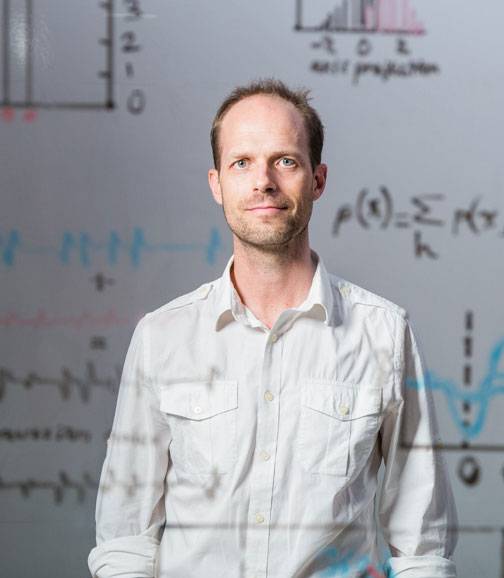
Jonathan Pillow
Jonathan Pillow
Jonathan Pillow, a faculty member since 2014, works on problems at the intersection of neuroscience, statistics and machine learning. Students who work in his lab said they were grateful for the stimulating and supportive atmosphere he fosters. “Professor Pillow has created a very collaborative, energetic and friendly lab environment, and has made it very clear that diversity and inclusivity are important to him,” said a member of his lab. “Gestures like highlighting achievements, inquiring about students’ stress levels, or inviting the group over to his house for a lab brunch showed a great level of care and also created a very close-knit community inside the group,” said a research assistant. Students cited his commitment to “the well-being of the graduate community,” particularly his frankness in discussing the challenges of graduate school and research. “He constantly leads by example, giving his students a role model to emulate rather than instructions to follow,” said an advisee.

Anna Shields
Anna Shields
Anna Shields, a faculty member since 2015, specializes in classical Chinese literature of the Tang, Five Dynasties and Northern Song eras. Shields models “collegiality at its best,” providing mentorship and guidance to graduate students and junior scholars throughout the Department of East Asian Studies. Said one student: “I work in a different language, country and discipline. She has nonetheless been a valuable resource for me and for many of my fellow students, freely offering much-appreciated advice and support in all areas of academic life.” Many Ph.D. candidates are especially appreciative of her workshops to help them practice public speaking skills, maintain work-life balance and serve as effective allies for one another. “Through these workshops, we all have learned aspects of academic life that are not shared in any textbook,” said one student. In addition to helping young scholars navigate the world of academia with greater ease, Shields’ “dedication and passion for teaching” has sparked the same in those she mentors. “I am spectacularly grateful for having the opportunity to learn from such a fantastic teacher,” said a teaching assistant.



